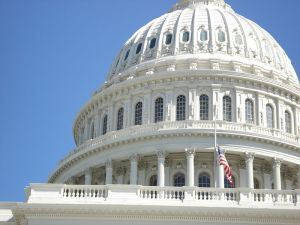“You say it again, and you say it again, and you say it again, and you say it again, and you say it again, and then again and again and again and again, and about the time that you’re absolutely sick of saying it is about the time that your target audience has heard it for the first time.”
Frank Luntz, political strategist
Community bankers aren’t the type to hold back an opinion, whether it’s offering advice to a small-business customer or weighing in on how to promote local economic activity. But in this age of short news cycles and even shorter attention spans, community bankers have to be willing to tell their story time and time again to connect with policymakers and the broader public.
The future of the industry depends on our ability to speak out passionately and directly. And with ICBA Community Banking Month and the countdown to the ICBA Washington Policy Summit underway, now is the time for community bankers to make their voice heard loud and clear. That’s why ICBA is offering a variety of resources to help community bankers spread the industry’s message.
The ICBA Community Banking Month website offers resources that community bankers can use to espouse the benefits of community banking, including a custom news release and op-ed, sample social media updates, and an infographic. It also offers a custom letter to Congress that community bank customers can use to advocate on behalf of the industry to their lawmakers.
Meanwhile, community bankers can continue the industry’s push for regulatory relief and other important policy goals at this month’s ICBA Washington Policy Summit. Scheduled for April 24-27 in the nation’s capital, the summit allows community bankers to meet directly with their members of Congress and regulators to advance smarter banking policies.
As ICBA Chairman Rebeca Romero Rainey said at last month’s ICBA Community Banking LIVE convention, each community bank has a unique story of how they serve their local communities and make an individualized impact on their customers. Our industry’s success depends on our ability to share that story—to the people in our communities, to the news media, to the policymakers who establish the laws we live by, and to the next generation of community bankers.
So let’s tap into that and tell the community banking story—again and again. While you might get tired of repeating the benefits of banking locally and the need for policymakers to allow this system to thrive, we owe it to our communities, our economy and the future of our industry to make sure our voices are truly heard.

